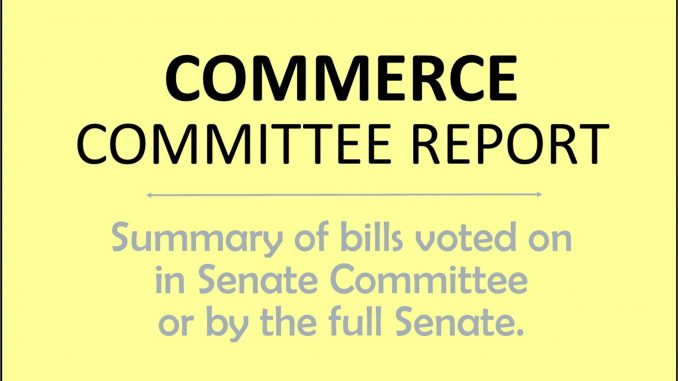
SF 402 – Credit Union Division “good faith” requirement
SF 403 – Credit Union Superintendent subpoena power
HF 260 – Permissible interest rates
FLOOR ACTION:
SF 402 – Credit Union Division “good faith” requirement
SF 402 is a proposal by the Credit Union Division to add a new section to Code Ch. 533 – Credit Unions. It stipulates that any information, record, application or document provided to the division must be provided in good faith. A director, officer, agent or employee of a state credit union, a credit union service organization, or any other person must not intentionally publish, report, submit or file any information, record, application or document that is false or misleading by statement or omission. Any such information provided in the absence of good faith or in violation of the bill may be subject to revocation of prior approval or denial.
[4/8: 50-0]
SF 403 – Credit Union Superintendent subpoena power
SF 403 is a recommendation by the Credit Union Division of the Department of Commerce. Currently, the superintendent of credit unions can subpoena witnesses and compel the production of any relevant record only during the period of an examination of a state credit union. This bill expands the timeframe to include the examination period and time related to any report or filing made by or provided to the division. If a person subpoenaed by the superintendent fails to produce a record as required by the terms of the subpoena, the superintendent may apply to Polk County district court to issue an order compelling compliance. The refusal of any person to obey such an order without reasonable cause constitutes contempt of court.
[4/8: 50-0]
HF 260 – Permissible interest rates
HF 260 (SF 320) allows the Iowa Superintendent of Banking to set interest rates on a tiered basis and finance charges for certain loans of $30,000 or less. It applies to non-depository lenders who acquire financing on the open market (banks and credit unions are depository lenders). These lenders offer installment loans to consumers, typically small loans for appliances or vehicles. Customers may prefer this local financing option to apply for a loan rather than another financial institution, delayed deposit companies (payday loans), or out-of-state online lenders that charge higher rates and fees. Currently, the Superintendent can establish the maximum rate of interest or charges for regulated loans (Code Ch. 536, Regulated Loans) with unpaid principal balances of $10,000 or less. This increases that amount to $30,000. The maximum interest rate is capped at 36 percent. For loans with unpaid principal balances in excess of $30,000, the maximum interest rate or charges remains the greater of the rate permitted in Code Ch. 535 or the rate authorized for supervised financial organizations in Code Ch. 537. The bill authorizes a creditor to contract for and receive, for an interest-bearing consumer credit transaction, a service charge (a.k.a. loan origination fee) in an amount not to exceed 10 percent of the amount financed or $30, whichever is less. If the creditor has received such a service charge, the creditor cannot collect or retain a minimum charge upon prepayment as authorized under Code section 537.2510; rebate upon prepayment does not apply to service charges collected pursuant to the bill. Similar legislation was introduced last session.
Stakeholders worked with the Banking Division and Attorney General’s office to refine the proposal to ensure regulation and consumer protection. The companies will continue to be regulated and licensed by the Superintendent of Banking and be under the jurisdiction of the Attorney General via the Uniform Consumer Credit Code.
[4/8: 40-10 (No: Bolkcom, Celsi, Dotzler, Giddens, Hogg, Jochum, Lykam, J. Smith, T. Taylor, Wahls)]
